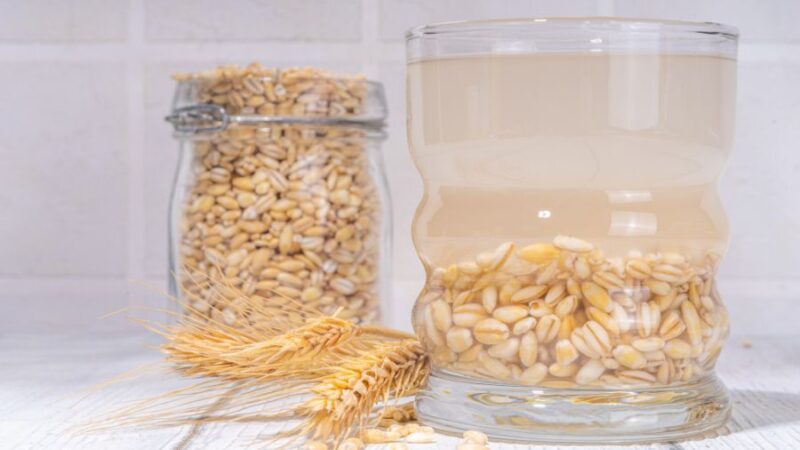Best Winter Foods for Weight Loss

As the winter chill sets in, many of us find ourselves craving comforting and hearty meals. While the season tempts us with indulgent treats, it’s entirely possible to navigate the winter months in a way that supports our weight loss goals.
Our tastes tend to go toward hot and spicy cuisine throughout the winter, along with a want for rich, hot, and sweet desserts. But this tendency may pose a problem for our health objectives. Knowing that food is the energy our bodies need to perform at their best means that it is even more important to choose carefully, particularly in the winter.
More energy is needed in the winter to stay warm, and more nutrients are needed to maintain a higher metabolism. Choosing meals high in nutrients not only fulfils our wants but also guarantees a healthy choice that corresponds with the body’s heightened requirements during this time of year.
In this blog Best Winter Foods for Weight Loss, we’ll explore a variety of delicious and wholesome foods that not only keep you warm but also contribute to a healthy and satisfying winter diet.
Soups and Broths
Winter and soups go hand in hand, creating a comforting and nourishing combination that warms both the body and soul. As temperatures drop, there’s nothing quite like sipping on a steaming bowl of soup or broth to chase away the chill. Here’s a celebration of winter soups and broths, offering not only warmth but also a wealth of flavors and nutritional benefits:

- Chicken Noodle Soup: A classic and timeless winter favorite, chicken noodle soup combines tender chicken, hearty vegetables, and comforting noodles in a savory broth. It’s not just delicious but also provides hydration and essential nutrients.
- Butternut Squash Soup: Velvety and rich, butternut squash soup captures the essence of winter. Roasted butternut squash, aromatic spices, and a touch of cream create a bowl of warmth that’s both satisfying and full of vitamins.
- Tomato Basil Soup: A comforting classic, tomato basil soup warms the soul with its vibrant flavors. The pairing of ripe tomatoes, aromatic basil, and a hint of cream creates a soothing and delightful winter treat.
- Vegetable Broth: A versatile base for many winter soups, vegetable broth is light yet flavorful. It provides a warm canvas for incorporating an array of seasonal vegetables, herbs, and spices, allowing for endless variations.
Leafy Greens
Winter is the perfect time to embrace a variety of leafy greens that thrive in cooler temperatures. Here are some winter-friendly leafy greens to include in your seasonal dishes:

- Spinach: Spinach is a versatile and nutrient-dense leafy green. It’s rich in iron, vitamins A and C, and antioxidants. Add fresh spinach to salads, blend it into smoothies, or sauté it as a side dish.
- Arugula: Arugula has a peppery flavor that adds a zesty kick to salads and dishes. It’s high in vitamins A and K and can be used as a base for salads or added to pizzas and sandwiches.
- Endive: Endive has a slightly bitter taste and a crisp texture. Use endive leaves as a vehicle for dips or fill them with other ingredients for appetizers. Its unique flavor can add depth to salads.
- Mustard Greens: Mustard greens have a peppery taste and are rich in vitamins A, C, and K. They can be used in salads, sautéed, or added to soups and stir-fries.
- Romaine Lettuce: Romaine lettuce has crisp leaves and a mild flavor. It’s a good source of vitamins A and K. Use romaine lettuce in salads, wraps, or as a bed for various toppings.
- Beet Greens: Beet greens are the leafy tops of beets and are rich in nutrients like vitamins A and K. Use them in salads or sauté them with garlic and olive oil for a flavorful side dish.
Recommended – Does Portion Control Really Work for Weight Loss
Root Vegetables
These versatile vegetables, harvested from beneath the soil, are known for their robust flavors and ability to withstand the chill of winter. Here are some delightful root vegetables that can add depth and warmth to your winter culinary creations:

- Carrots: Sweet and crunchy, carrots are a staple root vegetable rich in beta-carotene, which is converted to vitamin A in the body. Roast them, add them to soups, or enjoy them raw for a nutritious snack.
- Sweet Potatoes: With their vibrant orange flesh, sweet potatoes are a nutritional powerhouse. Packed with vitamins A and C, fiber, and antioxidants, they can be roasted, mashed, or used in casseroles for a comforting winter treat.
- Beets: Beets boast a rich, earthy flavor and are loaded with vitamins, minerals, and antioxidants. Roast or boil them for salads, blend them into soups, or enjoy them pickled for a burst of color and flavor.
- Radishes: Radishes add a peppery crunch to winter dishes. They’re low in calories and high in vitamin C. Slice them into salads, pickle them, or enjoy them as a fresh and vibrant side.
- Turnips: Both the roots and greens of turnips are edible. The mild, slightly peppery taste of turnips makes them versatile for roasting, mashing, or adding to stews for a winter comfort dish.
Citrus Fruits
Citrus fruits brighten up the winter season with their vibrant colors, zesty flavors, and a burst of essential nutrients. These refreshing fruits not only add a delightful touch to winter dishes but also provide a dose of vitamin C and other antioxidants. Here are some popular citrus fruits that thrive during the winter months:

- Oranges: Oranges are a classic winter fruit known for their sweet and tangy flavor. Rich in vitamin C, oranges are perfect for snacking, juicing, or adding to salads to enhance both taste and nutritional value.
- Grapefruits: Available in red, pink, and white varieties, grapefruits offer a slightly tart and refreshing taste. They are high in vitamin C, fiber, and antioxidants. Enjoy them fresh, in salads, or as a tangy addition to breakfast.
- Clementines: Clementines, a type of mandarin orange, are easy to peel and have a sweet and juicy flavor. These bite-sized citrus gems make for convenient and healthy snacks during the winter months.
- Mandarins: Mandarins, including varieties like Satsumas and Tangerines, are small, sweet, and easy to peel. Packed with vitamin C, mandarins are a portable and delicious winter treat.
- Lemons: Lemons bring a zesty and bright flavor to both sweet and savory dishes. Rich in vitamin C, lemons can be used in cooking, baking, or as a refreshing addition to water for a citrusy boost.
- Pomelos: Pomelos are the largest citrus fruit, known for their mild and sweet flavor. High in vitamin C and fiber, pomelos make a refreshing addition to fruit salads or can be enjoyed on their own.
- Kumquats: Kumquats are unique citrus fruits with an edible peel and a sweet-tart taste. They are rich in fiber, vitamin C, and antioxidants, making them a delightful and nutritious winter snack.
Nuts and Seeds
Nuts and seeds are nutritional powerhouses that can be enjoyed year-round, and they become especially appealing during the winter months. Packed with essential nutrients, healthy fats, and protein, nuts and seeds offer a satisfying crunch and versatility in various culinary applications. Here’s a selection of nuts and seeds that can be incorporated into your winter diet:

- Almonds: Almonds are a versatile nut rich in vitamin E, healthy fats, and protein. Snack on them raw, roasted, or incorporate them into winter salads, oatmeal, or yogurt for a satisfying crunch.
- Walnuts: Walnuts are high in omega-3 fatty acids, which support heart health and brain function. Add chopped walnuts to oatmeal, baked goods, or sprinkle them over winter salads for a nutty flavor.
- Cashews: Cashews are creamy and delicious, offering healthy fats, protein, and minerals like zinc and magnesium. Enjoy them as a snack or use cashews to make creamy winter soups and sauces.
- Pistachios: Pistachios are nutrient-dense nuts loaded with fiber, protein, and antioxidants. Snack on them or add shelled pistachios to winter desserts, salads, or savory dishes for a delightful touch.
- Chia Seeds: Chia seeds are tiny nutritional powerhouses rich in omega-3 fatty acids, fiber, and protein. They can be added to winter smoothies, yogurt, oatmeal, or used to make chia seed puddings for a boost of nutrition.
- Flaxseeds: Flaxseeds are an excellent source of plant-based omega-3 fatty acids, fiber, and lignans with antioxidant properties. Ground flaxseeds can be sprinkled on winter cereals, added to smoothies, or used as an egg substitute in baking.
- Sunflower Seeds: Sunflower seeds are rich in vitamin E, magnesium, and selenium. Sprinkle sunflower seeds on winter salads, add them to granola, or enjoy them as a standalone snack. Sunflower seed butter is
- Sesame Seeds: Sesame seeds are rich in calcium, iron, and healthy fats. Sprinkle sesame seeds on winter stir-fries, salads, or use them to make tahini, a versatile ingredient in various cuisines.
Give a look at 9 Winter Superfoods to Reduce Memory Loss Symptoms
Green Tea
Green tea, with its rich history and numerous health benefits, is a comforting and invigorating beverage that can be especially enjoyable during the winter months. As the temperatures drop, a steaming cup of green tea not only warms the body but also offers a variety of potential health advantages. Here’s a closer look at the features and benefits of green tea, making it a delightful choice for the winter season:

- Antioxidant Power: Green tea is renowned for its high concentration of antioxidants, particularly catechins. These powerful compounds help combat oxidative stress in the body, supporting overall health and well-being.
- Immune Support: The antioxidants in green tea, such as epigallocatechin gallate (EGCG), may help support the immune system. During the winter when colds and flu are prevalent, incorporating green tea into your routine can be a flavorful way to give your immune system a boost.
- Hydration without Calories: Staying hydrated is essential, even in the winter. Green tea is a calorie-free beverage that provides hydration along with its refreshing taste. Choosing green tea as a warming drink helps maintain adequate fluid intake during colder weather.
- Metabolism Boost: Green tea has been associated with a modest increase in metabolism, making it a potential aid for those looking to manage their weight. The combination of catechins and caffeine in green tea can contribute to a slight boost in metabolic rate.
- Heart Health: Regular consumption of green tea has been linked to cardiovascular health. The antioxidants in green tea may help lower levels of bad cholesterol (LDL) and reduce the risk of heart disease.
Spices
Winter is the perfect season to embrace a rich and aromatic array of spices that add warmth and depth to your culinary creations. Beyond enhancing flavor, many winter spices boast health benefits and contribute to the cozy ambiance of cold-weather meals. Here’s a selection of spices that can elevate your winter dishes:

- Cinnamon: The sweet and warming notes of cinnamon are synonymous with winter. Sprinkle it on oatmeal, add it to baked goods, or stir it into warm beverages like hot chocolate and mulled cider.
- Cloves: Cloves contribute a strong, aromatic flavor with a hint of sweetness. Use them in spiced desserts, infuse them into hot drinks, or stud them into hams for a fragrant and flavorful winter feast.
- Ginger: Known for its zesty and slightly spicy profile, ginger adds warmth to both sweet and savory dishes. Incorporate fresh or ground ginger into soups, stir-fries, and gingerbread treats.
- Cardamom: Cardamom offers a unique and citrusy flavor. Use it in baking, add it to coffee or tea, or include it in savory dishes like rice pilaf for a sophisticated and aromatic twist.
- Turmeric: Turmeric not only imparts a vibrant yellow color but also offers anti-inflammatory properties. Incorporate it into savory dishes like curries or golden milk lattes for both flavor and potential health benefits.
Winter weight loss doesn’t mean sacrificing flavor or comfort. By incorporating these nutrient-dense and low-calorie foods into your winter diet, you can enjoy delicious meals while staying on track with your weight loss goals. Remember to focus on portion control, stay hydrated, and embrace a holistic approach to health by incorporating regular physical activity into your routine. This winter, let your meals be a celebration of both warmth and wellness.
Recommended – Quick and Easy Healthy Snack Ideas for Weight Loss







One thought on “Best Winter Foods for Weight Loss”